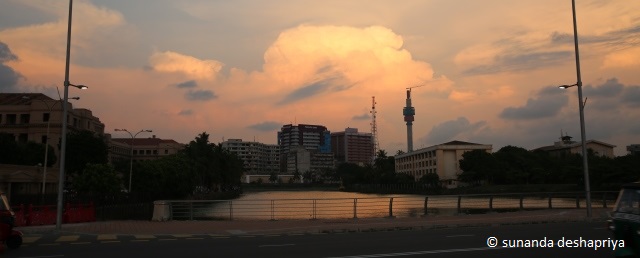The GSP Plus facility granted by the European Union is — by its very nature — a highly conditional duty free concession. To argue otherwise would be disingenuous.
One need not look far. The concession’s unabbreviated name is the ‘EU Special Incentive Arrangement for Sustainable Development and Good Governance’. It is awarded to selected countries on the basis of specified human rights and governance objectives being met. In evaluating Sri Lanka’s application for a renewal of the facility, therefore, the EU would be constrained by a design of its own making to grade the Government’s performance in a wide range of areas.
Sri Lanka lost the concession in 2010 precisely because it had failed on multiple fronts to adhere to conditions inherently attached to the GSP Plus. The EU examined implementation of three key conventions: The International Covenant on Civil and Political Rights (ICCPR); the Convention against Torture (CAT); and the Convention on the Rights of the Child (CRC).
The EU concluded that, “neither the ICCPR, the CAT, nor the CRC, nor the legislation incorporating the obligations under these conventions have been effectively implemented in Sri Lanka during the period covered by the investigation”. The Government was given time to act; it failed and the trade concession was withdrawn.
Much has changed since that report came out.
The war is ended, the regime has changed, the Emergency has been lifted (one of the EU’s key concerns) and certain steps have been taken in the direction of reconciliation. But a cursory examination of an EU-spearheaded list of 58 commitments — and such a list does exist — makes it clear that a lot of what is expected of Sri Lanka has not yet been achieved.
Deputy Foreign Minister Harsha de Silva admitted this week that “multiple action points” had been identified where “progress is expected and being made” (the operative word being “expected”). These action points include reviewing and repealing the Prevention of Terrorism Act; expediting cases of remaining detainees; rehabilitating ex-combatants; amending the Code of Criminal Procedure to include the rights of detainees; adopting new regulations for public disorder management; reviewing the Public Security Ordinance; and expediting the processing of remaining cases referred by the UN Working Group on Enforced or Involuntary Disappearances.
They also include establishing an Office on Missing Persons; making fully operational provisions of the Protection of Victims of Crime and Witness Act; introducing a new Human Rights Action Plan; and ratifying the Convention on Disabilities and sending to Parliament the draft Disability Rights Bill.
Among the other undertakings are sending to Parliament a new Prisons Administration Act and adopting a strategy against prison overcrowding; expediting the conclusion of emblematic cases identified in report of the Office of the UN High Commissioner for Human Rights; introducing reforms to address delays in the administration of justice; and reviewing the status of Tamil diaspora organisations and individuals in the terrorist list.
These are but a fraction of the commitments made. Significantly, Sri Lanka must also have ratified 27 core international conventions when applying for the GSP Plus. “To be accepted into the GSP+, countries must sign a binding undertaking to maintain their ratification of the 27 conventions, and to ensure their effective implementation,” the EU states. Sri Lanka has acceded to but is yet to ratify several of these.
This week, a delegation led by Sonali Wijeratne, Director General of Commerce, was in Brussels for a meetign of the EU-Sri Lanka Working Group on Trade and Economic Relations Cooperation. A joint statement issued after their meetings said, “In particular it discussed Sri Lanka’s intention in applying for GSP+ status under the European Union’s GSP Regulation”.
There is little difference between this and the communiqué issued after the Working Group on Trade in 2015. That one said, “In particular they started the process that may lead to the re-admission of Sri Lanka to the status of GSP+ under the European Union’s new GSP regulation.”
The delegation comprised eight members from Colombo, four of whom had competence to take on human rights issues. Apart from Ms Wijeratne, they were Neil Asoka, DG Finance Ministry; Jayantha Senanayake, Director Agriculture Department; Champika Malalgoda, Executive Director BOI; Abdul Azeez, DG Ministry of Foreign Affairs; Yasantha Kodagoda, Additional Solicitor General; Udani Gunawardana, Assistant Director/Human Rights of the Ministry of Foreign Affairs; and Gehan Gunatilleke, Consultant Ministry of Foreign Affairs.
EU has strict monitoring mechanisms
If and when the GSP Plus concession is granted to Sri Lanka, the EU will in two-yearly cycles monitor implementation of 27 international conventions.
The monitoring mechanism involves two interrelated tools, EU literature states. The first is the “scorecard”, an annual exchange of information on beneficiaries’ shortcomings on each of the 27 conventions, as identified in particular by the international monitoring bodies. Beneficiaries are encouraged to provide information on their progress against the shortcomings, and details of future plans. Responses to this GSP Plus report will be welcomed through their replies to the next scorecards.
The second tool is the “GSP+ dialogue”. This is a close engagement between the EU and the beneficiary countries to support them to tackle their shortcomings, discuss difficulties, and recognise the progress made. The GSP+ dialogue seeks to build a relationship based on trust and cooperation, and makes use of existing bilateral fora (e.g. on trade, human rights, and labour rights).
“The exact objectives of GSP+ monitoring vary between beneficiaries,” a fact-sheet explains. “It is essential that beneficiaries’ challenges and achievements are seen in their own national contexts.”
By Namini Wijedasa
